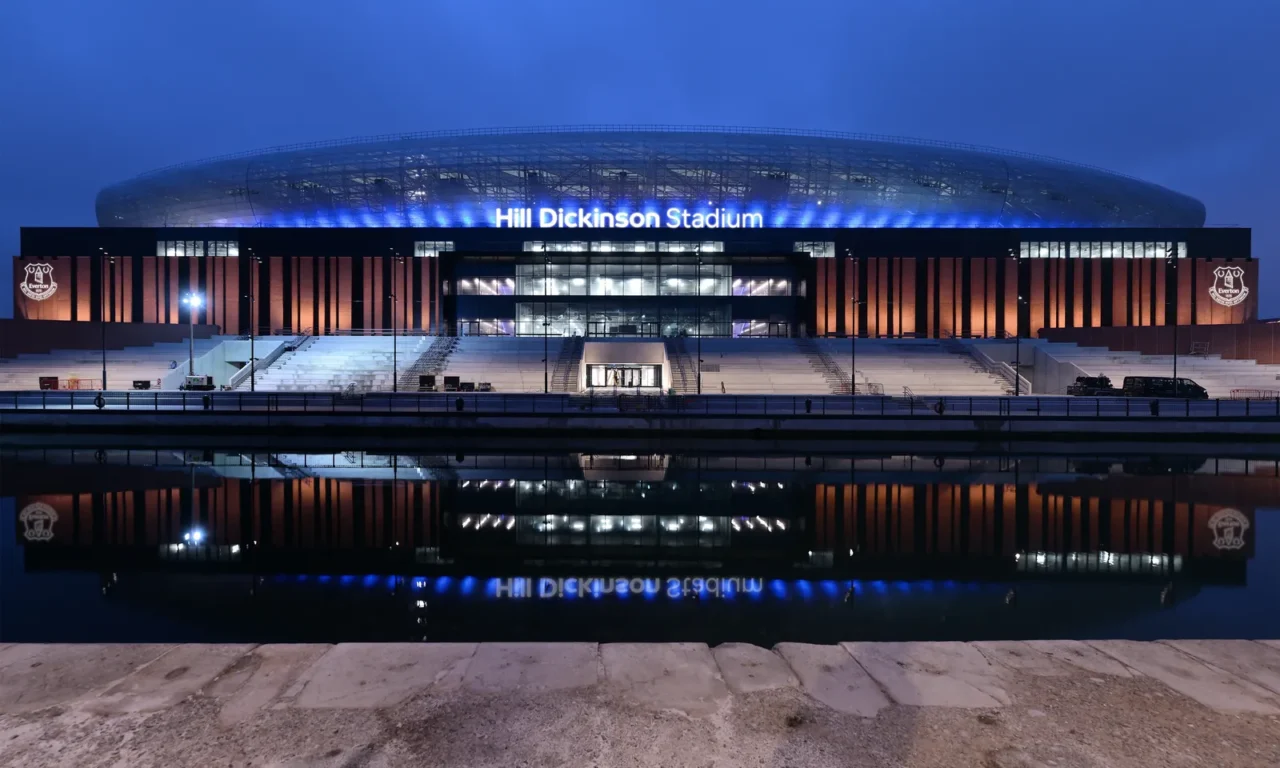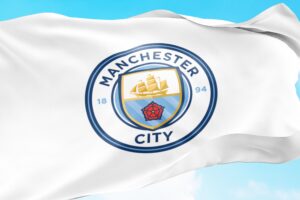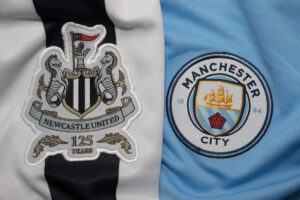Everton’s Hill Dickinson Stadium Deal: Global reach, local impact

When Everton Football Club confirmed that its new home at Bramley-Moore Dock would be called the Hill Dickinson Stadium, reactions were swift. And not always kind.
For fans, the name came as a surprise. For rival fans, particularly those on the red half of Merseyside, it was comedic gold. Social media exploded, with memes, jokes, and the unfortunate but inevitable hashtag #DickDock gaining traction within hours.
As a lifelong Everton supporter, I’ll admit: the name doesn’t exactly sing. It’s clunky, lacks rhythm, and sounds more like a law firm (because it is one) than a fortress of football. But as Editor of The Sponsor, I also see something else, a bold, strategic move from a quiet law firm and a potentially transformative commercial moment for the club.
The poetry of naming rights
Let’s be clear. Stadium naming rights were never about poetry, they're about progress. And early reports suggest that this is one of the largest stadium naming rights deals in European football. While the exact figures haven’t been confirmed, it’s believed the partnership with Liverpool-based Hill Dickinson LLP is not only long-term but significantly lucrative.
For Everton, that means new revenue streams. And for fans, it could translate to a bigger transfer budget, better players, and a more competitive squad when the club moves into its new home.
A bold move from Hill Dickinson
From Hill Dickinson’s perspective, the move is nothing short of audacious. In one announcement, the law firm has gone from relative obscurity (at least in the eyes of the average football fan) to front-and-centre visibility on one of the most significant stadium developments in the UK.
This isn’t just a naming deal, it’s a brand transformation strategy. And it’s one that brings multiple layers of value:
-
Global Awareness
The obvious one. A stadium naming rights deal of this magnitude catapults the Hill Dickinson brand not just to the forefront of the national conversation but also establishes the firm on a global level thanks to the Premier League's colossal reach.
-
Deep local roots
Founded in Liverpool with roots dating back to representing White Star Line after the sinking of the Titanic, Hill Dickinson’s involvement is more than a commercial decision, it’s a statement of civic pride. Few partnerships carry such symbolic weight when the sponsor shares the same DNA as the club and the city.
-
Long-term brand equity
Naming rights deals are a long game. They rarely win hearts overnight, but they do embed themselves into the fabric of the game over time. Just ask fans of Arsenal (Emirates), Man City (Etihad), or Brighton (Amex). Eventually, the name stops sounding strange. It just is.
-
Differentiation
In the legal sector, bold brand moves are rare. By putting their name on a Premier League stadium, Hill Dickinson has stepped outside the traditional marketing playbook and repositioned itself as modern, ambitious, and culturally attuned. It’s a sharp break from mahogany boardrooms and Latin slogans.
-
Relationship-building
With the stadium comes hospitality. With hospitality comes clients. Naming rights open the door to powerful relationship-building opportunities, from premium matchday hosting to executive networking, all set within one of the country’s most anticipated sporting venues.
"To put our name to Everton’s new stadium is a once-in-a-generation opportunity. We believe deeply in what this project stands for — a bold, transformational vision for Liverpool and its future.
This partnership is about legacy, ambition, and the power of two globally recognised organisations coming together to make a difference.
As Hill Dickinson continues to grow nationally across the UK and internationally, we remain proud of our Liverpool roots and we are honoured to be part of one of the most exciting waterfront developments in Europe. It couldn’t come at a more opportune time, with the deal providing the perfect platform to launch our new brand to a global audience.”
Craig Scott, Hill Dickinson, CEO
Beating the competition
Despite being a club outside the Premier League’s so-called "big six", Everton has done something few others have managed, secured a long-term stadium naming rights partner before stepping foot into their new ground. This deal, with Hill Dickinson LLP, puts them ahead of clubs with arguably greater commercial appeal. Tottenham Hotspur’s stadium, which opened in 2019, remains without a naming partner. The same goes for West Ham United, who have played at the London Stadium since 2016. That Everton, through a smart, locally aligned partnership, has closed such a deal first, is a serious achievement.
Decoding stadium sponsorship success: Four essential criteria for brands
It also reflects just how tough stadium naming rights deals are to land. Clubs often overestimate the market appetite. For every Emirates or Etihad, there are far more clubs struggling to find a brand willing to sign up for the financial and reputational risk. These are high-stakes, long-term deals that can backfire if the name isn’t accepted by fans or if the team underperforms. Even global giants like Real Madrid have delayed naming their redeveloped Bernabéu, wary of undermining tradition or choosing the wrong fit.
Commercial Strategy
Everton, by contrast, has chosen progress over perfection. The name might not be iconic, at least not yet, but the commercial message is clear: Everton is entering a new chapter with momentum. The deal brings credibility, stability, and signals a more focused commercial strategy. At a time when the club has faced scrutiny over financial controls and uncertainty around ownership, this is a strong signal to the market, to fans, and to future sponsors.
In fact, this could be the start of a wider shift in Everton’s commercial narrative. With the new stadium nearing completion, this partnership with Hill Dickinson lays the foundation for further brand tie-ups, kit sponsors, sleeve sponsors, training ground deals, and additional stadium partners. When executed well, stadium naming rights don’t just generate revenue. They act as a magnet for further commercial activity.
And crucially, Everton didn’t chase a global logo just for optics. They partnered with a Liverpool-founded firm. A brand that shares the club’s geography, history, and ambition. That might not grab headlines in New York or Tokyo but in terms of authenticity and long-term brand fit, it’s a deal that makes a lot of sense.
The fan dilemma
Of course, not every Everton fan will immediately embrace the name. That’s par for the course, just ask rugby fans how they felt about the hallowed turf of Twickenham being renamed the Allianz Stadium. Naming rights are often met with resistance, scepticism, or outright ridicule, especially when the sponsor isn’t a global consumer brand.
But what matters isn’t the first impression. It’s the lasting impact. And while hashtags come and go, a financially secure, forward-facing club with an iconic new home is something every fan can get behind.
Register for a free account with The Sponsor to access more practical sponsorship tips and expert insights.









